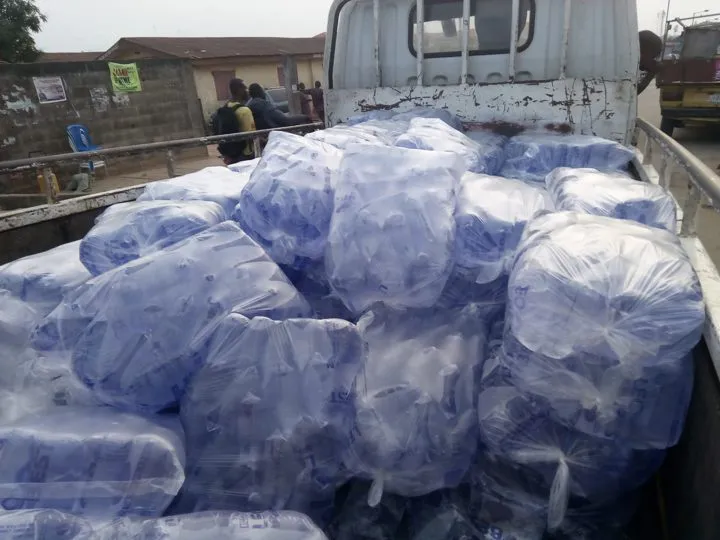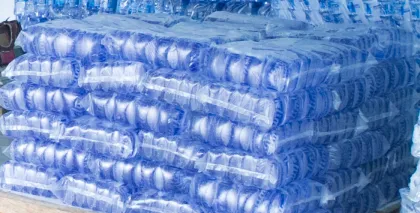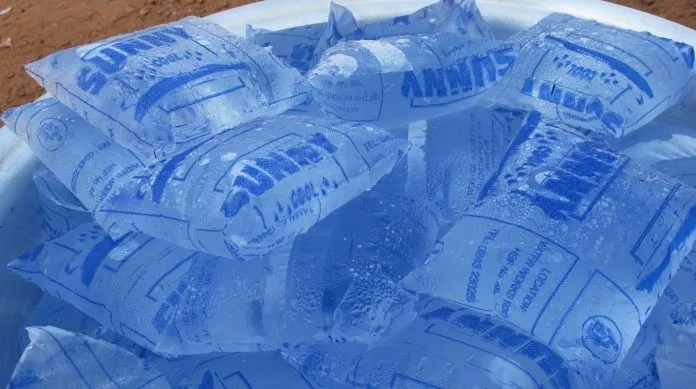Are you still drinking sachet pure water? See what it does to your Body
Most people living in large cities in Nigeria do not have access to piped water, which may be either unavailable or not accessible enough. Therefore, people use more expensive alternatives to buy water from suppliers; Pack or bottled water becomes a major source of drinking water.
(Picture used for illustrative purpose)
As a result, individuals who could afford water now drilled holes and sold packaged water, some without any major treatment, to the growing population.
But there is a notion that water is a means through which disease-causing organisms spread. Evidence is that packaged water, which is the main means of drinking water in Nigeria, is not exempt from deadly organisms, due to its microbiological nature. Unsafe drinking water supply and hygienic sanitation are considered to be responsible for more than 70% of diseases in developing countries.
Why Nigerians love drinking sachet water
Nigerians wouldn't fret as long as they get the water to quickly extinguish their thirst; particularly in rush hour periods where you have a wide range of hawkers selling various types of items just to make a decent living, NAFDAC approved or not.
Because of all these happenings, we will find that we have some way or another let go of quality and replaced it with quality. Without a doubt, not many even go through the trouble to check if the sachet water is NAFDAC endorsed or not. These days, one can't even tell if the ones with NAFDAC numbers on them are real or not. Anybody can compose any number on any item and guarantee it as NAFDAC approved.
How sachet water gets contaminated
Different studies on the coasts of Nigeria have shown that different products contain different types of microorganisms in the same batch of the same company and in other areas. Common contaminants are those found in normal handheld drinking water with few faecal colonies. This is an indication that there is no treatment or it is poorly treated.
Sachet water is also contaminated after it is stored for a long time. Some operators do not see the nature of proper and continuous storage and continually expose the water bag packed to sunlight. There is also inadequate screening and oversight by distributors, retailers, and suppliers that sometimes affect the quality of standard products through the way it is being handled, packaging, storage and even distribution.

Consequently, consumer confidence in the industry, which used to be very high, is gradually eroded by these quality risks. Perhaps most worrying are the health risks associated with these quality issues.
Sachet water that increases the likelihood of contamination of both bacteria, exogenous contaminants, as well as a range of other contaminants including mineral salts, pollutants, organic contamination, heavy metals, and radioactive residues. There will be increase in contamination of these products, when the water is not properly stored and handled during storage.
The harmful effects of drinking sachet pure water and what it does to the body
The health risks of drinking pure water in Nigeria are quite serious and the situation will only get worse if the water is not treated properly. Some of these health risks are:
1. Hypertension: Bisphenol A (BPA) is one of the substances used to produce sachets and has health problems that lead to high blood pressure. When most of these street vendors introduce the pure water to the sun, BPA could leak into the water.
2. The Mayo Clinic emphasizes that exposure to BPA is a concern as it may affect the health of the brain and prostate glands of the fetus, newborn and children. It can also affect a child's behavior.

3. Also, the public vehicle used in moving these sachet waters around are often left open in the sun, which may facilitate the release of some chemicals into the packaged water, causing damage. compassion for the body.
The need for re-certification of packed water manufacturers
The National Food and Drug Administration (NAFDAC) should try to stop manufacturers of counterfeit and non-standard packaging water bags commonly known as pure water in Nigeria. Plans should be put in place to regulate the booming sachet water businesses and close down as many of them do not meet standards.
NAFDAC should also try to monitor and visit pure water factories over time as they receive complaints from the public and ensure that every sachet water manufacturer has to renew their licenses or approve them every three years, or stop working.
How can the health risks of drinking sachet pure water in Nigeria be avoided?
This can be done by educating the people about the risks of drinking from unverified sources. The western world believes that bottled water should be avoided.
However, there is no reason why the Nigerian people should not try the same treatment if they are willing to do so. If you live in Nigeria and want to see positive changes in the country's public health, you need to help by sponsoring a project where the people of Nigeria will be encouraged to use bottled water in preference to water obtained from an unverified source.

It is not likely that the problems associated with the health risks of drinking sachet pure water in Nigeria will disappear until we change our attitude towards our natural resources. There is no excuse for people to drink untreated water. We must all take responsibility for the future of our children. Our natural resources are dwindling, therefore we need to do whatever we can to prevent harm to ourselves and our children.
The best thing we can do is to use water purification methods when we are in a position to afford them. There is no reason to compromise on the quality of water we drink, but the rest of the world might argue that the way we are presently drinking water is simply not good enough.
It is our job to educate them! It is our duty to have a healthy lifestyle, and we need to show other people how to have healthy lifestyles, too!
Bottom line
The expiry date of the sachet water pack manufactured in Nigeria should not be more than four weeks from the date of manufacture. The public should be sensitive not to drink packaged water that has exceeded four weeks from the date of manufacture. Regulatory authorities should adopt standardized water storage methods to increase shelf life. Periodic hygiene checks of package water plants by regulatory authorities are absolutely necessary to ensure compliance.





0 Response to "Are you still drinking sachet pure water? See what it does to your Body"
Post a Comment